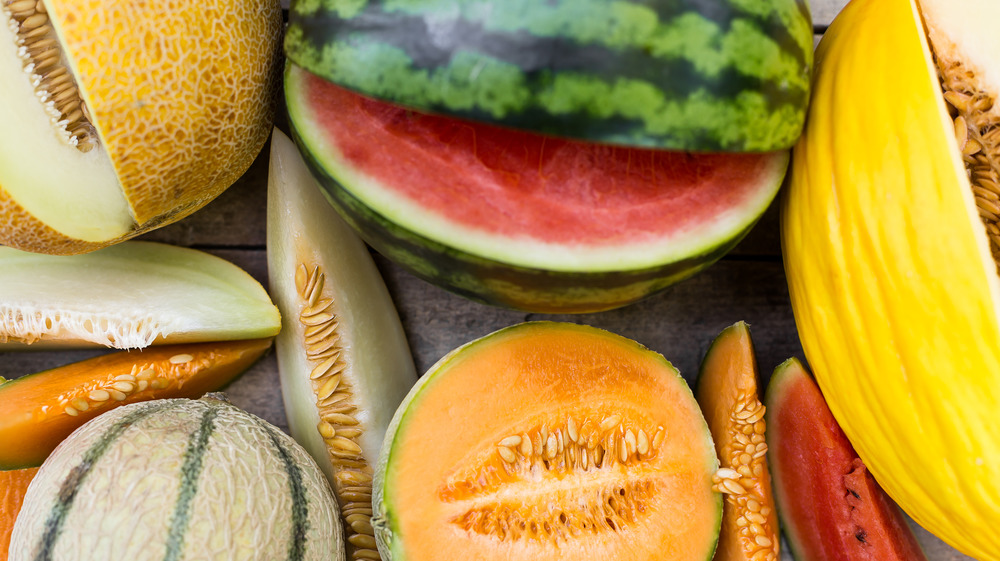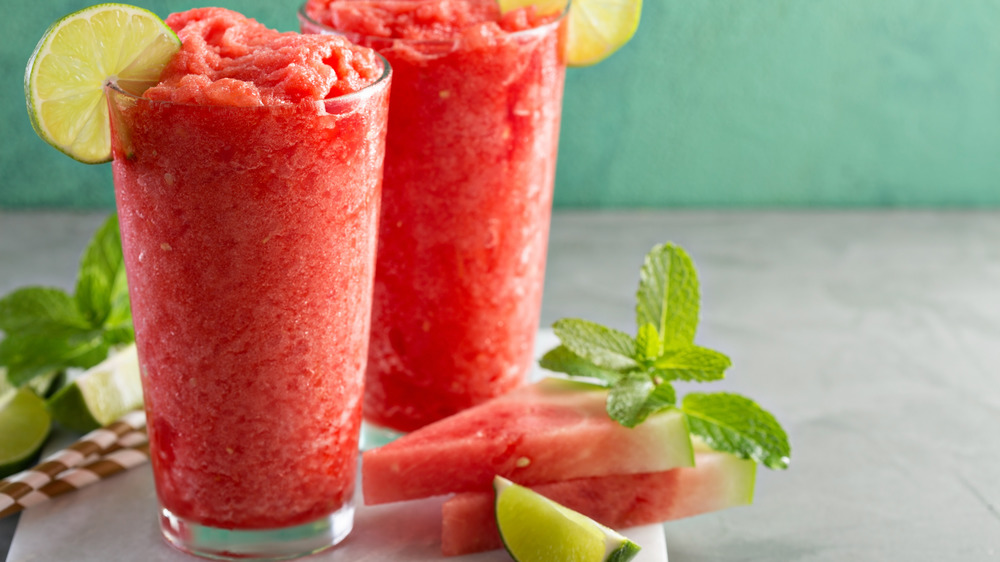You Shouldn't Freeze Watery Fruits. Here's Why
Fresh fruit is like ambrosia for the gods. It's so deliciously sweet and natural. We love to eat it with our cereal, in our salads, and with our yogurt and desserts. But according to a study done by the Centers for Disease Control and Prevention in 2017, it was found that a whopping 90 percent of Americans don't get the recommended daily intake of this food group and all of the vital nutrients it provides. But hey, we get it. Sometimes it's difficult to ensure you get the amount of fruit needed each day to keep your body in tip-top shape.
Luckily, there are a variety of ways to up how much fruit you're consuming. While we especially love when fruit is in season and at its sweetest, we're also happy to overbuy and freeze it to eat at a later date if we thought the flavor and texture would withstand the thawing process. But per the University of Minnesota Extension, science says not all fruits freeze and thaw the same way, so you have to pick and choose wisely which ones are best to subject to this chilly process. To this end, you should never freeze watery fruit or fruit with a high water content. Here's why.
Frozen fruit with a high water content can be a mushy mess when defrosted
So, what's the hold-up with freezing watery fruits? The University of Minnesota Extension explains that fruits, in general, are water dense. In fact, only ten percent of your favorite fruit's weight is made up of something other than water. If we take a stroll down memory lane back to middle school science, you may remember that when water freezes it expands. Think about every homeowner's worst nightmare when on a cold winter's night, a pipe freezes and bursts, causing a horrible leak. A similar thing happens with frozen fruit, only the freezing water in your fruit causes cell walls to break, leaving you with a watery-syrupy mess. This probability is most prominent with different types of melons and tomatoes, which are all high in water.
Now, if you aren't expecting the defrosted fruit to retain its original consistency, you probably won't care if it's mushy. But even still, how can you utilize this new texture? Self notes that if you do freeze fruits like honey dew, cantaloupe, or watermelon, you can only really salvage them by using them in some type of frozen drink. In the case of tomatoes, the article also shares that it is better to take your fresh tomatoes and turn them into a sauce first, then freeze it, rather than trying to freeze the fresh tomatoes as is.

